This time I will bring you three points that you must pay attention to when writing html code. What are the precautions when writing html code. The following is a practical case, let's take a look.
The cautionary points I want to talk about in this article have nothing to do with browser compatibility. They are mainly a summary of several small problems I encountered in the project. Although the problems are small, they are sometimes very troublesome. I will record them here. I will continue to add it here if there are such problems later.
1. Space between inline tags
Under normal circumstances, when writing html code, there are habits such as line breaks and indentation, such as
<head>
<meta charset="utf-8">
<style>
html,body, p, dl, dt, dd, ul, ol, li, h1, h2, h3, h4, h5, h6, pre, code, form, fieldset, legend, input, button, textarea, p, blockquote, th, td{
margin: 0;
padding:0;
}
#myDIV {
width: 200px;
height: 200px;
background-color: #ff0;
}
#myDIV > p{
width: 50px;
height: 50px;
display: inline-block;
background-color: #f00;
}
</style>
</head>
<body>
<p id="myDIV">
<p>p1</p>
<p>p2</p>
</p>
</body>There is a blank in the middle. The reason is that if there are continuous spaces, carriage returns, and line feeds between two inline tags (or set display: inline or inline-block), these symbols will be processed as a space symbol by default.
For example, if we add " ddd dd d d " between two p tags, the effect is as follows. No matter how many connected whitespace symbols there are, the final effect will be only one space character
This is similar to writing character classes directly into inline elements but inside Linked elements will remove leading and trailing whitespace characters.
So what needs to be reminded is:
<p id="myDIV">
<p>p1</p> ddd dd d <p>p2</p>
<span> d dd d </span>
</p>
span is divided into two sections and is no longer a complete block.
2. The default margin border of the body tag
html,body, p, dl, dt, dd, ul, ol, li, h1, h2, h3, h4, h5, h6, pre, code, form, fieldset, legend, input, button, textarea, p, blockquote, th, td{
margin: 0;
padding:0;
}3. Special whitespace characters cause display exceptionsFor example, there seems to be no problem in the source code below<!DOCTYPE html>
<html>
<head>
<meta charset="utf-8">
<style>
html,body, p, dl, dt, dd, ul, ol, li, h1, h2, h3, h4, h5, h6, pre, code, form, fieldset, legend, input, button, textarea, p, blockquote, th, td{
margin: 0;
padding:0;
}
*{
-webkit-box-sizing: border-box;
-moz-box-sizing: border-box;
box-sizing: border-box;
}
#myDIV {
width: 200px;
height: 40px;
background-color: #ff0;
}
#myDIV a{
float: left;
width: 200px;
background-color: #f00;
}
</style>
</head>
<body>
<p class="tabbable" id="tabs" style="border:none;">
<!-- 页面标签列表 -->
<p id="myDIV" >
<a data-toggle="tab" href="#tab-content-0" >test0</a>
</p>
</p>
</body>
</html>In fact, there is an abnormality in front of the a tag The width of the whitespace characters
a should be the same as the width of #myDIV, and a is floating, but the display effect is line wrapping, which is too crazy. Yes, yes.
The normal display effect is
Let’s take a look at what this abnormal blank is.
The first one is an abnormal space, and its URI component is encoded as "%E3%80%80"
The second one is normal spaces, its URI component code is "%20"
The third one is a normal Tab build, its URI component code is "%20%20%20%20", which is actually 4 spaces.
Detailed examples of HTML text formatting
HTML editing basics (a must-read for novices)
htmlHow to use titles, paragraphs, line breaks, horizontal lines, and special characters
The above is the detailed content of Three points that you must pay attention to when writing html code. For more information, please follow other related articles on the PHP Chinese website!
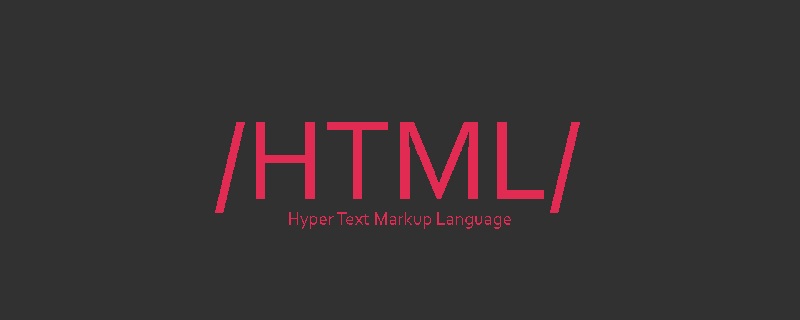 HTML超文本标记语言--超在那里?(文档分析)Aug 02, 2022 pm 06:04 PM
HTML超文本标记语言--超在那里?(文档分析)Aug 02, 2022 pm 06:04 PM本篇文章带大家了解一下HTML(超文本标记语言),介绍一下HTML的本质,HTML文档的结构、HTML文档的基本标签和图像标签、列表、表格标签、媒体元素、表单,希望对大家有所帮助!
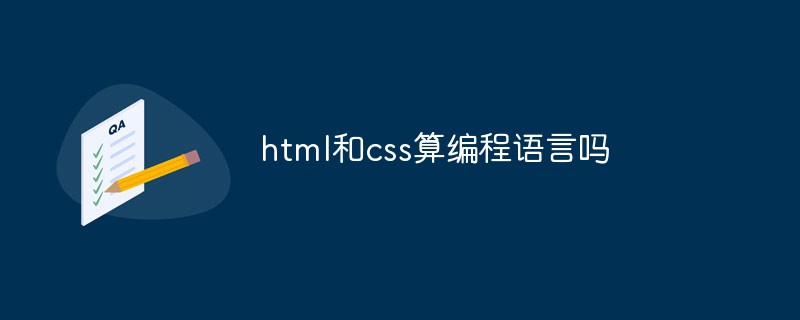 html和css算编程语言吗Sep 21, 2022 pm 04:09 PM
html和css算编程语言吗Sep 21, 2022 pm 04:09 PM不算。html是一种用来告知浏览器如何组织页面的标记语言,而CSS是一种用来表现HTML或XML等文件样式的样式设计语言;html和css不具备很强的逻辑性和流程控制功能,缺乏灵活性,且html和css不能按照人类的设计对一件工作进行重复的循环,直至得到让人类满意的答案。
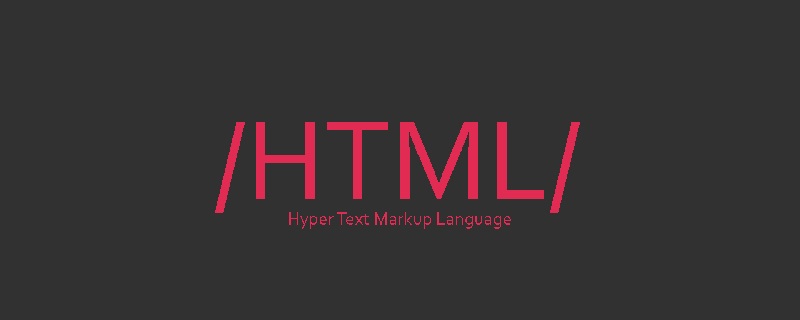 web前端笔试题库之HTML篇Apr 21, 2022 am 11:56 AM
web前端笔试题库之HTML篇Apr 21, 2022 am 11:56 AM总结了一些web前端面试(笔试)题分享给大家,本篇文章就先给大家分享HTML部分的笔试题(附答案),大家可以自己做做,看看能答对几个!
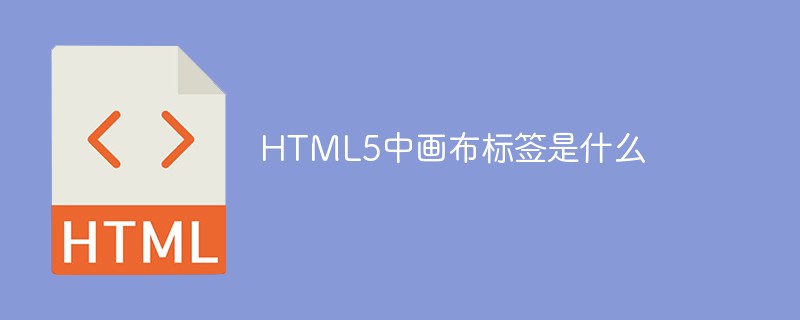 HTML5中画布标签是什么May 18, 2022 pm 04:55 PM
HTML5中画布标签是什么May 18, 2022 pm 04:55 PMHTML5中画布标签是“<canvas>”。canvas标签用于图形的绘制,它只是一个矩形的图形容器,绘制图形必须通过脚本(通常是JavaScript)来完成;开发者可利用多种js方法来在canvas中绘制路径、盒、圆、字符以及添加图像等。
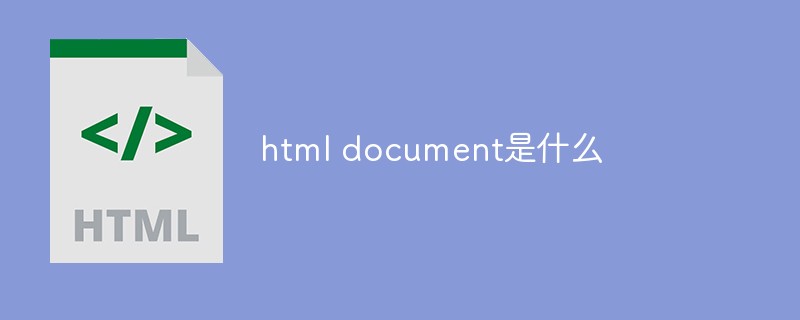 html中document是什么Jun 17, 2022 pm 04:18 PM
html中document是什么Jun 17, 2022 pm 04:18 PM在html中,document是文档对象的意思,代表浏览器窗口的文档;document对象是window对象的子对象,所以可通过“window.document”属性对其进行访问,每个载入浏览器的HTML文档都会成为Document对象。
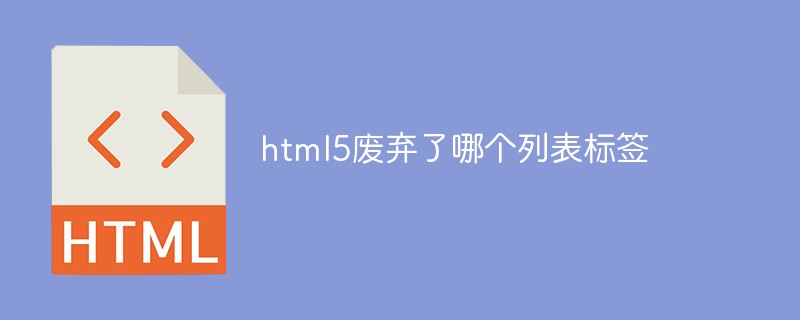 html5废弃了哪个列表标签Jun 01, 2022 pm 06:32 PM
html5废弃了哪个列表标签Jun 01, 2022 pm 06:32 PMhtml5废弃了dir列表标签。dir标签被用来定义目录列表,一般和li标签配合使用,在dir标签对中通过li标签来设置列表项,语法“<dir><li>列表项值</li>...</dir>”。HTML5已经不支持dir,可使用ul标签取代。
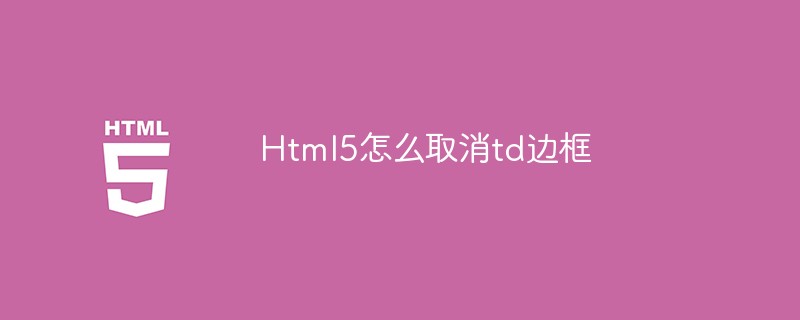 Html5怎么取消td边框May 18, 2022 pm 06:57 PM
Html5怎么取消td边框May 18, 2022 pm 06:57 PM3种取消方法:1、给td元素添加“border:none”无边框样式即可,语法“td{border:none}”。2、给td元素添加“border:0”样式,语法“td{border:0;}”,将td边框的宽度设置为0即可。3、给td元素添加“border:transparent”样式,语法“td{border:transparent;}”,将td边框的颜色设置为透明即可。


Hot AI Tools

Undresser.AI Undress
AI-powered app for creating realistic nude photos

AI Clothes Remover
Online AI tool for removing clothes from photos.

Undress AI Tool
Undress images for free

Clothoff.io
AI clothes remover

AI Hentai Generator
Generate AI Hentai for free.

Hot Article

Hot Tools

SublimeText3 English version
Recommended: Win version, supports code prompts!

Safe Exam Browser
Safe Exam Browser is a secure browser environment for taking online exams securely. This software turns any computer into a secure workstation. It controls access to any utility and prevents students from using unauthorized resources.

Zend Studio 13.0.1
Powerful PHP integrated development environment

DVWA
Damn Vulnerable Web App (DVWA) is a PHP/MySQL web application that is very vulnerable. Its main goals are to be an aid for security professionals to test their skills and tools in a legal environment, to help web developers better understand the process of securing web applications, and to help teachers/students teach/learn in a classroom environment Web application security. The goal of DVWA is to practice some of the most common web vulnerabilities through a simple and straightforward interface, with varying degrees of difficulty. Please note that this software

mPDF
mPDF is a PHP library that can generate PDF files from UTF-8 encoded HTML. The original author, Ian Back, wrote mPDF to output PDF files "on the fly" from his website and handle different languages. It is slower than original scripts like HTML2FPDF and produces larger files when using Unicode fonts, but supports CSS styles etc. and has a lot of enhancements. Supports almost all languages, including RTL (Arabic and Hebrew) and CJK (Chinese, Japanese and Korean). Supports nested block-level elements (such as P, DIV),







